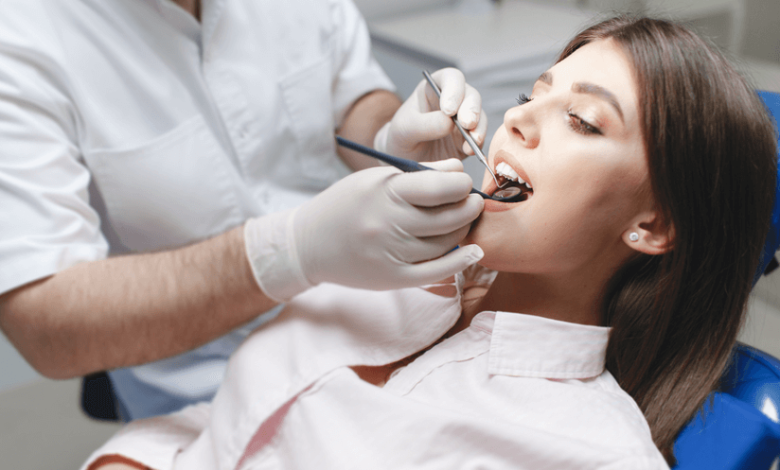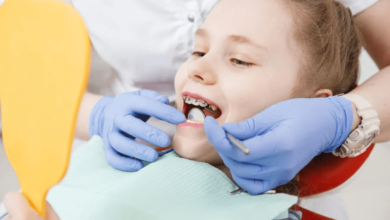Ouch! Common Causes of Intense Tooth Pain You Should Know

Tooth pain is one of the most uncomfortable experiences anyone can have. Whether it’s a dull throb that lingers or a sharp, stabbing sensation that takes your breath away, severe tooth pain can interfere with eating, sleeping, and even speaking. Understanding the causes behind this discomfort is crucial not only for relief but also for preventing further dental complications. In this post, we’ll explore the most common causes of intense tooth pain and what you can do about them.
1. Tooth Decay and Cavities
The most common culprit behind severe tooth pain is tooth decay, often caused by cavities. Cavities occur when acids produced by bacteria in the mouth erode the enamel—the hard, protective layer of your teeth. As decay progresses, it can reach the softer dentin or even the pulp, which contains nerves and blood vessels. When this happens, any contact with hot, cold, or sweet substances can trigger sharp pain.
Regular brushing, flossing, and routine dental check-ups are essential for preventing cavities. Once decay has reached the deeper layers, professional treatment such as fillings, crowns, or root canal therapy may be necessary.
2. Tooth Abscess
A tooth abscess is a serious infection that forms a pocket of pus at the root of a tooth or in the gums. It’s usually the result of untreated cavities, gum disease, or trauma to the tooth. Abscesses can cause intense, throbbing pain, swelling, and even fever in severe cases.
Prompt treatment is critical to prevent the infection from spreading to other parts of the body. Dentists may prescribe antibiotics and perform procedures like draining the abscess or a root canal to eliminate the infection.
3. Cracked or Fractured Teeth
Sometimes tooth pain occurs not because of decay but due to a crack or fracture in the tooth. Cracks can be tiny and invisible to the naked eye, but they can still expose the inner layers of the tooth to irritants like air, food, and bacteria, causing sudden, sharp pain when biting or chewing.
Treatment options vary depending on the severity of the crack. Minor cracks may be repaired with dental bonding, while more significant fractures might require crowns or even extraction in extreme cases.
See also: Innovating Wellness: How Jiabei Health is Transforming Gummy Vitamin Manufacturing
4. Gum Disease
Gum disease, or periodontal disease, is another common cause of tooth pain. Early-stage gum disease (gingivitis) may cause mild discomfort, bleeding gums, or sensitivity. If it progresses to periodontitis, the gums and bone that support teeth can become severely damaged, leading to pain, loose teeth, and even tooth loss.
Maintaining good oral hygiene, regular dental cleanings, and treatment for gum infections can prevent or reduce the severity of gum-related tooth pain.
5. Tooth Sensitivity
Tooth sensitivity can be triggered by worn enamel, exposed tooth roots, or even frequent consumption of acidic foods. While sensitivity is generally milder than other causes, it can still cause intense discomfort in certain situations, especially when consuming cold, hot, or sweet foods and beverages.
Using toothpaste designed for sensitive teeth, avoiding acidic foods, and consulting your dentist for treatments like fluoride applications can help manage tooth sensitivity effectively.
6. Impacted Wisdom Teeth
Wisdom teeth, the third set of molars, often don’t have enough room to emerge properly. When they become impacted, they can push against neighboring teeth or gums, leading to severe pain, swelling, and sometimes infection.
Dentists may recommend extraction to relieve pain and prevent complications. Regular monitoring of wisdom teeth through X-rays is essential to catch potential problems early.
7. Other Causes
Less commonly, intense tooth pain can be related to sinus infections, teeth grinding (bruxism), or even nerve disorders like trigeminal neuralgia. If your tooth pain doesn’t fit the usual patterns or persists despite dental care, it’s essential to seek professional advice to rule out these causes.
In Conclusion
Severe tooth pain should never be ignored. Whether it’s caused by cavities, abscesses, cracked teeth, or gum disease, dental issues like these can lead to significant discomfort. Seeking prompt care not only alleviates pain but also helps prevent more serious complications from developing.
Maintaining proper oral hygiene, scheduling regular dental check-ups, and consulting a professional at the first sign of tooth pain are essential for keeping your smile healthy. If you experience sudden or intense tooth pain, don’t wait—contact an emergency dentist in South Jordan to get immediate care. Remember, a toothache is more than just a nuisance—it’s your body’s warning that something is wrong, and acting quickly is crucial for long-term dental health.





